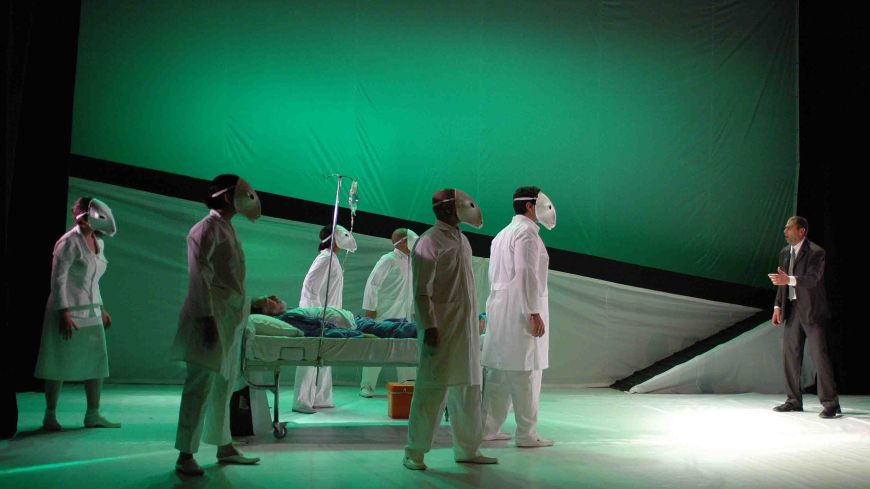
There are fine theatrical moments in Jidariyya, from the opening in a hospital emergency room to its close. The
journey of a soul is, of course, a frequent and time-honoured motif in the
literature of all cultures, and Mahmoud Darwish's poetry nods frequently toward
a variety of sources.
Jidariyya celebrates both uniqueness and universality,
and the fact that true art is aware of both these aspects of its work. Making art
in troubled times is always both difficult and necessary, as difficult,
perhaps, as persuading audiences in such circumstances that the song of the
tribe must become the song of the world if the tribe itself is to be heard and
to survive.
One would have to lack understanding and empathy in large measure
not to appreciate the challenges facing the Palestinian National Theatre, and particularly
unappreciative to fail to notice how ably they rise to meet them. Facing death,
the poet undergoes a spiritual pilgrimage from past to future, taking strength
from the differing cultures which have previously nurtured him.
Jidariyya is
far more than a meditation on the inevitability and acceptance of death; it is at
least as much a celebration of the sources of culture and of inspiration. As a
piece of theatre, it combines dance, song and movement to great effect, and
contains one of the most simply elegant coups de theatre this reviewer has seen
in some time.
For Darwish, the ultimate death is the death of language, a thought
with which Scots, among others, ought to sympathise. Language, after all, carries
the meaning of our different traditions; words and phrases have familial,
tribal, and cultural resonance acquired over time. They contain the key and
chronology of our lives. Here the Palestinian National Theatre give us
opportunities to appreciate the meanings of our own and other cultures through
keyholes different from our own.
Times: Aug 14-17 at 20:00
Copyright Bill Dunlop August 2008
Published on EdinburghGuide.com August 2008

